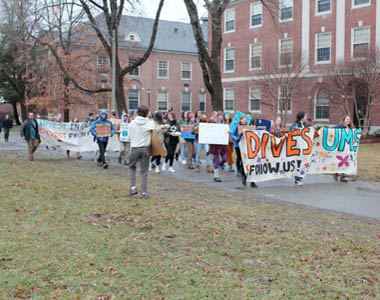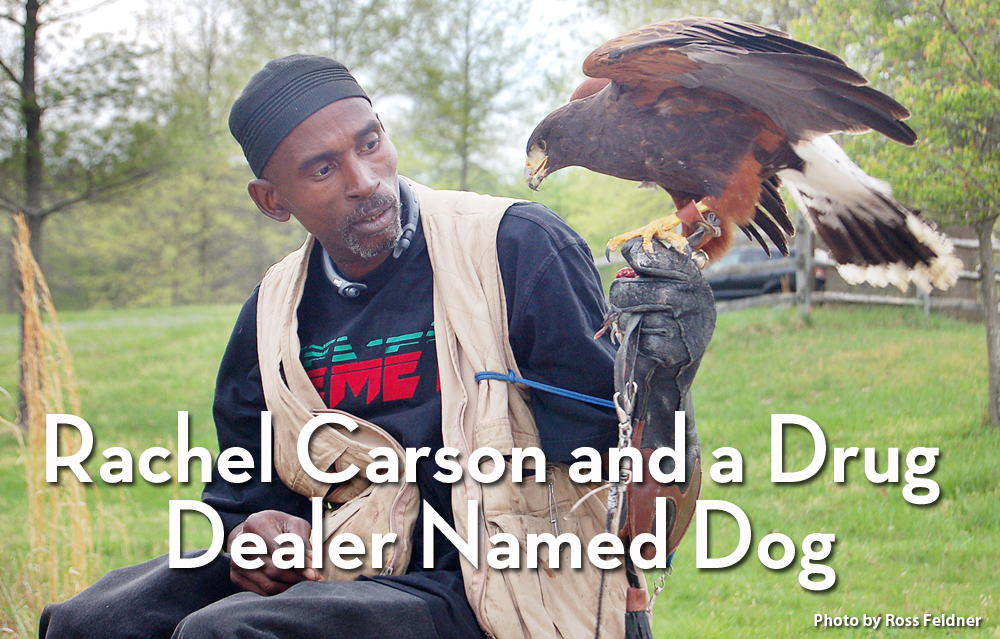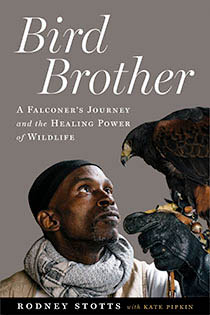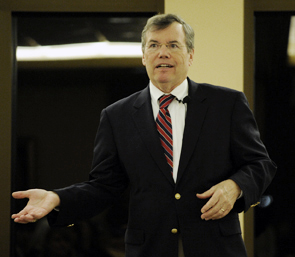 | | | Although most environmental headlines in 2022 were reserved for big events like COP27 at Sharm al Sheikh, or President Biden’s signing of the most significant climate legislation ever with the Inflation Reduction Act, American campuses took strong action on climate and sustainability throughout the year. Even without the fanfare of Harvard’s divestment that drew wide attention in 2021, college and university’s continued to drop oil, gas, and coal from their endowments, moving them, instead, into renewable energy, or other socially beneficial investments. In this issue of the RCC Campus Dispatch, you’ll find a summary of trends in campus divestment, including total divestment from places like the University of Maine system or Marquette University, along with signs that faculty and student engagement with divestment may even be growing. And those colleges that have not announced divestment in 2022 are quietly moving in that direction, while taking steps toward reducing carbon emissions.  Such student activism, sometimes seen as troublesome, actually leads to greater overall civic engagement, Margaret Brower reports, including the near-record turnout of student voting in the 2022 mid-term elections. Faculty and student research can also lead to greater engagement and productive collaboration between faculty and students and climate and environment projects carried out by NGOs and community organizations. In North Carolina, for example, researchers have been able to trace the source of excess breast cancer, brain tumors and other diseases to the Chemours fluorochemical production plant along the Cape Fear River. Such student activism, sometimes seen as troublesome, actually leads to greater overall civic engagement, Margaret Brower reports, including the near-record turnout of student voting in the 2022 mid-term elections. Faculty and student research can also lead to greater engagement and productive collaboration between faculty and students and climate and environment projects carried out by NGOs and community organizations. In North Carolina, for example, researchers have been able to trace the source of excess breast cancer, brain tumors and other diseases to the Chemours fluorochemical production plant along the Cape Fear River.
Rachel Carson Council Fellows (there are 29 in the 2022-2023 cohort) are also making their own headlines, as you’ll see in some of their writing and reports we spotlight this December. As just one example, RCC Fellow Cate Arnold at UNC-Wilmington shares how to develop GIS story maps, as she has, to trace growing disparities based on race and income in recovering from and rebuilding in Wilmington after Hurricane Florence. And, as our current crop of Fellows heads into their second semester with the RCC, applications for the 2023-24 RCC Fellowships will open on January 1, 2023. Be sure to check our RCC Campus Program page then for full details. And, as we move toward a new semester, RCC staff and President Bob Musil are once again taking to the road for campus visits. Your college or university can bring them for speaking engagements and meetings to connect your faculty, staff, and students to the growing nationwide RCC campus network. The RCCN, as Claudia Steiner’s reports, has just added its 63rd campus member. | | | | | | | | What’s the Outlook For College Fossil Fuel Divestment? This year hasn’t had 2021’s high-profile announcements, but trends say colleges are likely avoiding coal, oil and gas — whether they trumpet it or not. When Harvard University announced last fall that it would be divesting its endowment from the fossil fuel industry, it was part of a deluge. Roughly 20 colleges and universities announced last year that they would be divesting their endowments from the fossil fuel industry, according to a list maintained by environmental groups. | | | | | | | | This University Says it Cut Emissions by 19% Since 2019. Was it All Changes in Commuting? Vanderbilt University credits carbon emissions cuts to efficiency, energy sourcing and, yes, travel changes. Here’s what other college leaders can do. As the climate movement has grown, more attention has been paid to colleges’ significant contributions to greenhouse gas emissions. Many have tried to counter contributions with sustainability initiatives, with varying results. | | | | | | Historic Rutgers Joins RCC Campus Network New Jersey’s official State University is not always top of mind for outstanding American campuses. Yet Rutgers University is one of the oldest and most respected colleges in the country with a growing commitment to sustainability and carbon neutrality. Located in the hip urban-suburban town of New Brunswick, New Jersey, Rutgers – New Brunswick is the flagship of three campuses and boasts an enrollment of almost 40,000 students. | | | | | | Where Did the PFAS in Your Blood Come From? These Computer Models Offer Clues New research could help pinpoint “forever chemicals” exposure — giving communities a roadmap for cleanup and individuals direction on what to avoid. Downstream of a Chemours fluorochemical manufacturing plant on the Cape Fear River in North Carolina, people living in Brunswick and New Hanover counties suffer from higher-than-normal rates of brain tumors, breast cancers and other forms of rare — and accelerated — diseases. | | | | | | | | Coastal Researchers See Potential in Capturing Ocean Energy The federal government recently announced new offshore wind energy lease areas off the North Carolina coast, but for Dr. Mike Muglia, assistant director for science and research with the North Carolina Renewable Ocean Program at the Coastal Studies Institute, there is tremendous additional potential for power generation in the ocean’s waters. Much of Muglia’s research focus has been on how ocean currents can be harnessed, and he said the potential is huge, and while the obstacles are big too. | | | | | | Fed Up With the Ocean’s Plastic Problems, UC Irvine Post-grads Open Zero-waste Market Environmental scientists predict that oceans will contain more plastic, pound for pound, than fish by the year 2050. Jessica Walden and Chris McGuire, doctoral students in UC Irvine’s Department of Earth System Science, have seen this trend firsthand in their oceanographic studies of the Atlantic and Pacific, where the water samples they collect are replete with microplastics. | | | | | | Reimagining Democracy Through Student Activism Colleges would better serve students, themselves and the nation by building structures that promote student activism rather than those that repress it, Margaret T. Brower writes. The results of the midterm elections were revealing, in that young adults turned out in large numbers to prevent a “red wave” from occurring. What is sparking this engagement? In a recently published article in the journal Educational Policy, J. Kyle Upchurch and I took a closer look at 11 colleges and universities that either had higher- or lower-than-predicted voting rates among their students. | | | | | | Harvard Names Dr. Claudine Gay to Presidency Dr. Claudine Gay is making history. Gay, dean of Harvard University’s Faculty of Arts and Sciences, will succeed current Harvard President Dr. Lawrence S. Bacow on July 1, 2023. Gay’s appointment marks the first time a person of color will lead the nation’s oldest and one of its most prominent postsecondary institute. Gay will be only the second woman to take the role. | | | | | | | | Climate Anxiety? If you are someone who cares about the environment, you likely have experienced feelings of climate anxiety, or eco-grief. Although these new terms may be unfamiliar, and there is some debate whether they are even appropriate terms to use a general feeling of impending doom and sadness about the damage to our environment is very real. As part of my RCC Fellowship project at UNC- Charlotte, I gathered local community organizers and students to discuss the existence of climate anxiety and strategies for dealing with it. Here is what we found that helps. | | | | | | The Beauty of Geographic Information Systems Who doesn’t love maps, especially those that let us click and show information that might otherwise get lost in prose or in a footnote? As I am finding in my own work, there is real beauty in them. Let’s take a look at how they can be used in many ways that you can learn and incorporate in your own research and writing. Geographic Information Systems (GIS) are powerful computer systems that can help people discover information from geographic data. | | | | | | Hunger and History in St. Mary’s County, Maryland Whenever I think of a food desert, like anyone who has grown up in greater Washington, D.C., the district’s 7th and 8th wards south of the Anacostia River immediately come to mind. This urban neighborhood is one of the most segregated places in our nation’s capital, as well as one with some of the highest food insecurity. But now, attending St. Mary’s College of Maryland in rural southern Maryland, I can say that sometimes the most prominent food insecurity is in your own neighborhood, especially when you look deeply at who really has access to food. | | | | | | | | | | | | | | | | Rachel Carson and a Drug Dealer Named Dog  Rachel Carson did not know any gun-toting drug dealers named Dog. But Rodney Stotts, the central figure in Bird Brother, channels her values of empathy, wonder in nature, and its restorative power. Carson’s feeling for those species and people who are “others” is clear from her very first book, Under the Sea-Wind. We swim along with, and come to identify with, Scomber, the Mackerel, and Anguilla, the eel, as we are drawn into their dramatic struggles for survival in the sea. Rachel Carson did not know any gun-toting drug dealers named Dog. But Rodney Stotts, the central figure in Bird Brother, channels her values of empathy, wonder in nature, and its restorative power. Carson’s feeling for those species and people who are “others” is clear from her very first book, Under the Sea-Wind. We swim along with, and come to identify with, Scomber, the Mackerel, and Anguilla, the eel, as we are drawn into their dramatic struggles for survival in the sea.
 Once we make the imaginative leap of becoming an eel or a mackerel, it is an easy step to feel compassion, even love, for those far different than ourselves. Once we make the imaginative leap of becoming an eel or a mackerel, it is an easy step to feel compassion, even love, for those far different than ourselves.
Like Rachel Carson, or I suspect you, I had not known any drug dealers from Anacostia, let alone one I come to like and worry about as he evades the cops, sees his friends shot and stabbed, fights for his own life, and fends off vicious bullies in prison. Rodney Stotts (with Kate Pipin) relates all this in vivid, colorful, often amusing prose in what is part memoir, part spiritual and psychological journey, and part brilliant, close-up nature writing about the raptors (hawks, eagles, owls, falcons) who led him to escape his old life, spread his wings, and fly free. There are intriguing parallels with Rachel Carson here. Once Stott’s becomes a master falconer who introduces city kids to raptors and nature, he puts on programs at the Patuxent Research Refuge in Maryland , the very spot where Carson birded with friends like Chandler S. Robbins, author of the Golden Guide to Birds. It was Robbins who first introduced Carson to the early research about DDT at Patuxent linking it to adverse health outcomes in both birds and humans. Read more | | | | Plan Your 2023 Campus Events with RCC now! RCC prides itself on its National Campus Network of 63 colleges and universities schools. We are working to engage faculty members, students, and administrators in our efforts for a more just and sustainable world. With our growing fellowship program, our presence on campuses across the country has never been greater. Contact RCC today to bring our staff to your campus for lectures, workshops, or meetings to help find the best ways to engage your faculty and students in the efforts against climate change, environmental justice, and the work of the Rachel Carson Council Campus Visits with RCC President, Dr. Robert K. Musil  RCC President & CEO, Dr. Robert K. Musil, a national leader in climate change, environmental justice and health is again available to book for in-person campus speaking events! Musil has been called “informative, challenging and inspirational all at once.” He is “motivational” with “intellectual depth” and “extraordinary impact.” RCC President & CEO, Dr. Robert K. Musil, a national leader in climate change, environmental justice and health is again available to book for in-person campus speaking events! Musil has been called “informative, challenging and inspirational all at once.” He is “motivational” with “intellectual depth” and “extraordinary impact.”
Dr. Musil is available for campus lectures and visits involving classes, meetings with campus and community groups, consultations with faculty and administrators, or for Earth Day, Commencement, and other special events. Stays range from one to three days. Reduced fees are in place for 2022-2023 and can be designed to meet reduced budgets. To arrange a campus visit with Dr. Musil, contact the RCC President’s Office at office@rachelcarsoncouncil.org or call 301-214-2400. The RCC also offers talks, classes, and workshops on student engagement, activism, sustainability, and the RCC Fellowship program with Associate Director Mackay Pierce, Assistant Director for Climate Justice, Bella Jaramillo, and Assistant Director for Communications, Claudia Steiner. To arrange at, contact our Associate Director Mackay Pierce at: mackay@rachelcarsoncouncil.org | | | | | | | |  The Rachel Carson Council Depends on Tax-deductible Gifts From Concerned Individuals Like You. Please Help If You can. The Rachel Carson Council Depends on Tax-deductible Gifts From Concerned Individuals Like You. Please Help If You can. | | | |  Sign Up Here to Receive the RCC E-News and Other RCC Newsletters, Information and Alerts. Sign Up Here to Receive the RCC E-News and Other RCC Newsletters, Information and Alerts. | | | | | | | | | | | |